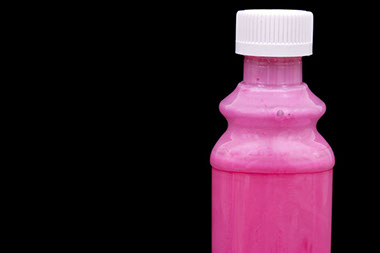Abdominal & Urinary Conditions
Diarrhea

Diarrhea occurs when body wastes are discharged from the bowel more often and in a more liquid state than usual.
Signs & Symptoms
• Frequent watery, loose stools.
• Cramping or pain in the abdomen.
Causes
Common causes are infections that affect the digestive system, food allergies, overuse of laxatives or alcohol, and taking some antibiotics. Diarrhea is also a symptom of lactose intolerance, diverticulitis, food poisoning, ulcerative colitis, Crohn’s disease, and irritable bowel syndrome (IBS).
Treatment
Self-care usually treats diarrhea. The goal is to replace lost fluids and minerals to prevent dehydration.
Questions to Ask
Question
01
With diarrhea, does an adult have any of these problems?
• Bloody, maroon, or tarlike stools.
• Very severe abdominal or rectal pain.
• Signs of severe dehydration.

Get medical care without delay. If symptoms are life threatening go to the ER or call 9-1-1. Don’t call 9-1-1 or use the ER if symptoms do not threaten life. Ask your doctor ahead of time where you should go for a problem that needs prompt care, but not emergency care.
x
Question
02
With diarrhea, does an infant or child have any of these problems?
• Sunken eyes.
• Dry skin that doesn’t spring back when pinched.
• Dry diaper for more than 3 hours in an infant.
• Passing no urine for more than 6 hours in a child.
• Weak cry. Acting very weak and very sleepy or very cranky.

Get medical care without delay. If symptoms are life threatening go to the ER or call 9-1-1. Don’t call 9-1-1 or use the ER if symptoms do not threaten life. Ask your doctor ahead of time where you should go for a problem that needs prompt care, but not emergency care.
x
Question
03
Are any of these problems present?
• Diarrhea lasts 48 hours or longer and/or occurs with a fever.
• Diarrhea follows foreign travel or antibiotic use.
• Diarrhea occurs with vomiting that lasts and keeps you from drinking fluids.

You should be seen by your doctor for medical advice. Contact your doctor or health care provider to find out how soon you should be seen.
x
Question
04
Does an infant or sick, elder person have diarrhea more than 8 times per day?

Call your doctor or health care provider and state the problem. He or she can decide what you should do.
x
Question
05
Are medicines being taken? (Medicines you take may not be working because of the diarrhea. Or, prescribed or over- the-counter ones, including herbal products, may be causing the diarrhea.)

Call your doctor or health care provider and state the problem. He or she can decide what you should do.
x
Question
06
Did diarrhea occur when you were in another country or shortly after coming back?

Call your doctor or health care provider and state the problem. He or she can decide what you should do.
x
Self-Care / Prevention
• If vomiting is also present, treat for vomiting first.
• To prevent dehydration:
– Drink plenty of water and other fluids, such as sports drinks, broths, and Kool-Aid (which usually has less sugar than soda).
– Avoid drinks with caffeine or alcohol.
– Avoid having high “simple” sugar drinks, like apple juice, grape juice, and sodas. These can make the diarrhea persist. Or, dilute juices and sodas with water.
If you have signs of dehydration seek medical care. Until you get care, drink fluids:
• Broths and sports drinks.
• For children less than 2 years old, give over- the-counter mixtures, such as Pedialyte as advised by their doctors.
• If you breast-feed, give only as much milk as your baby wants. Feed every 2 hours.
• Avoid caffeine and alcohol.
• Choose foods that don’t upset your stomach.
• Do not have foods that are greasy, high in fiber, or very sweet.
• Avoid milk, but try yogurt that has live cultures of lactobacillus acidophilus (unless you are lactose intolerant).
• Follow a light diet. Eat foods that are easy to digest, such as:
– Bananas.
– Plain rice.
– Boiled potatoes.
– Toast.
– Crackers.
– Cooked carrots.
– Baked chicken without the skin or fat.
– Soups with vegetables and noodles or rice.
• Don’t exercise too hard.
• Adults can try an over-the-counter medicine, such as Imodium A-D or Pepto-Bismol. Follow the directions on the label. {Note: Stools can become black after taking Pepto- Bismol. Also, do not give aspirin or any medication that has salicylates, such as Pepto- Bismol, to anyone under 19 years of age, due to the link to Reye’s syndrome.}
• Wash your hands after you go to the toilet and before you prepare food. Use paper towels to dry your hands. Throw the towels away.
Resources
National Institute of Diabetes and Digestive and Kidney Diseases (NIDDK) www2.niddk.nih.gov

Download an offline pdf file.
RELATED ARTICLES
<
>
2021 © American Institute for Preventive Medicine - All Rights Reserved. Disclaimer | www.HealthyLife.com








